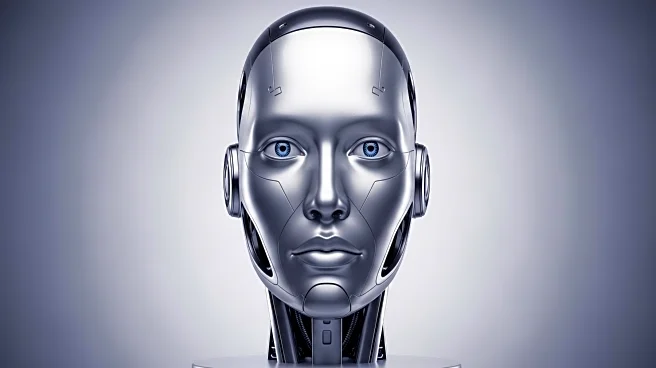What's Happening?
Tilly Norwood, an AI-generated character developed by Dutch comedian Eline Van der Velden's AI production studio Particle6, has become a controversial figure in Hollywood. Touted as the world's first artificial intelligence talent studio, Tilly has attracted interest from talent agents but also sparked backlash from actors' unions and industry professionals. Critics argue that Tilly's creation involved the unauthorized use of real people's images, although Particle6 denies these claims, stating that Tilly was developed from scratch. The AI character embodies traditional beauty standards, which experts warn could negatively impact young women's body image and self-perception. Tilly's existence raises concerns about the potential replacement of human actors, particularly those at the lower end of the industry hierarchy, with AI models that do not demand better working conditions.
Why It's Important?
The emergence of AI-generated actors like Tilly highlights significant ethical and societal implications. The character's adherence to conventional beauty standards could exacerbate body dissatisfaction among young women, as social media platforms increasingly influence self-image. Furthermore, Tilly's existence poses a threat to human actors, especially those without the power and networks of A-list stars, by potentially undermining their bargaining power for fair working conditions. This development reflects broader trends in creative industries where AI is used to manipulate models' images without consent or compensation, raising questions about the value placed on women's work and the normalization of controlling women's images.
What's Next?
The controversy surrounding Tilly may prompt further discussions within the entertainment industry about the ethical use of AI and the protection of human actors' rights. Actors' unions and advocacy groups might push for regulations to ensure fair compensation and consent in the use of AI-generated characters. Additionally, there could be increased scrutiny on AI production studios to prevent unauthorized use of individuals' likenesses. As the debate continues, stakeholders may explore ways to balance technological innovation with ethical considerations, potentially influencing future industry standards and practices.
Beyond the Headlines
Tilly's case underscores the need to critically assess the anthropomorphization of AI technologies, which can mislead the public about their capabilities and intentions. By framing AI characters as marketing products rather than artistic creations, society can better navigate the complexities of AI integration in creative fields. This perspective may help mitigate the risks associated with AI personhood and encourage more responsible use of technology in media and entertainment.









